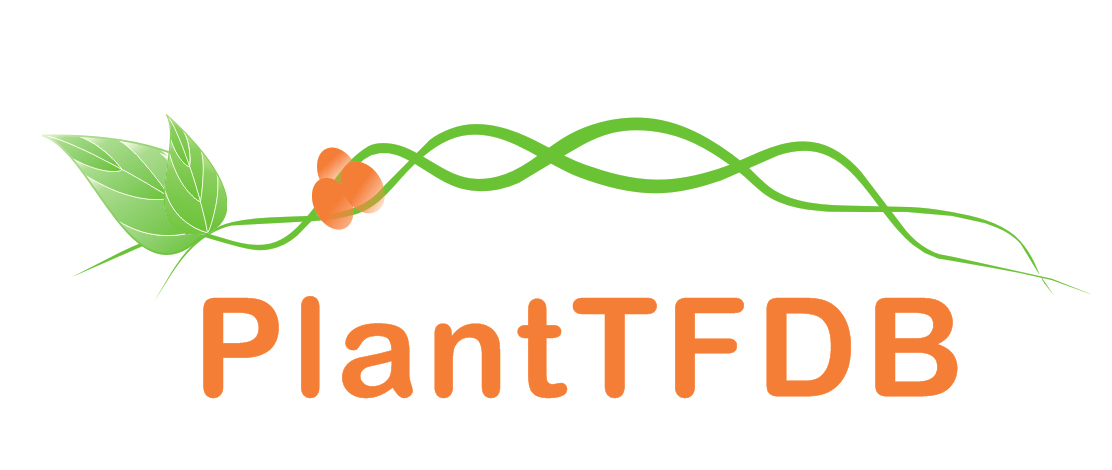 |
PlantRegMap/PlantTFDB v5.0
Plant Transcription
Factor Database
|
| Home TFext BLAST Prediction Download Help About Links PlantRegMap |
Transcription Factor Information
| Basic Information? help Back to Top | |||||||||
|---|---|---|---|---|---|---|---|---|---|
| TF ID | GSBRNA2T00018225001 | ||||||||
| Common Name | GSBRNA2T00018225001 | ||||||||
| Organism | |||||||||
| Taxonomic ID | |||||||||
| Taxonomic Lineage |
cellular organisms; Eukaryota; Viridiplantae; Streptophyta; Streptophytina; Embryophyta; Tracheophyta; Euphyllophyta; Spermatophyta; Magnoliophyta; Mesangiospermae; eudicotyledons; Gunneridae; Pentapetalae; rosids; malvids; Brassicales; Brassicaceae; Brassiceae; Brassica
|
||||||||
| Family | bZIP | ||||||||
| Protein Properties | Length: 395aa MW: 43353.9 Da PI: 5.5061 | ||||||||
| Description | bZIP family protein | ||||||||
| Gene Model |
|
||||||||
| Signature Domain? help Back to Top | |||||||
|---|---|---|---|---|---|---|---|
| No. | Domain | Score | E-value | Start | End | HMM Start | HMM End |
| 1 | bZIP_1 | 46.9 | 6.1e-15 | 198 | 251 | 3 | 56 |
XXCHHHCHHHHHHHHHHHHHHHHHHHHHHHHHHHHHHHHHHHHHHHHHHHHHHH CS
bZIP_1 3 elkrerrkqkNReAArrsRqRKkaeieeLeekvkeLeaeNkaLkkeleelkkev 56
++k+ rr+ +NRe+ArrsR+RK++++ Le+ v eL++e ++L k+l++++ ++
GSBRNA2T00018225001 198 DVKKSRRMLSNRESARRSRRRKQEQTCDLETQVNELKGEHSSLLKQLSNMNHKY 251
789*****************************************9888887766 PP
| |||||||
| Protein Features ? help Back to Top | ||||||
|---|---|---|---|---|---|---|
| Database | Entry ID | E-value | Start | End | InterPro ID | Description |
| SMART | SM00338 | 9.8E-19 | 196 | 260 | IPR004827 | Basic-leucine zipper domain |
| Gene3D | G3DSA:1.20.5.170 | 3.3E-12 | 197 | 250 | No hit | No description |
| PROSITE profile | PS50217 | 10.944 | 198 | 252 | IPR004827 | Basic-leucine zipper domain |
| Pfam | PF00170 | 3.0E-14 | 198 | 252 | IPR004827 | Basic-leucine zipper domain |
| SuperFamily | SSF57959 | 1.61E-11 | 199 | 250 | No hit | No description |
| PROSITE pattern | PS00036 | 0 | 203 | 218 | IPR004827 | Basic-leucine zipper domain |
| Pfam | PF12498 | 5.3E-12 | 267 | 358 | IPR020983 | Basic leucine-zipper, C-terminal |
| Gene Ontology ? help Back to Top | ||||||
|---|---|---|---|---|---|---|
| GO Term | GO Category | GO Description | ||||
| GO:0002240 | Biological Process | response to molecule of oomycetes origin | ||||
| GO:0009626 | Biological Process | plant-type hypersensitive response | ||||
| GO:0045893 | Biological Process | positive regulation of transcription, DNA-templated | ||||
| GO:2000693 | Biological Process | positive regulation of seed maturation | ||||
| GO:0005634 | Cellular Component | nucleus | ||||
| GO:0005737 | Cellular Component | cytoplasm | ||||
| GO:0003700 | Molecular Function | transcription factor activity, sequence-specific DNA binding | ||||
| GO:0043565 | Molecular Function | sequence-specific DNA binding | ||||
| GO:0046982 | Molecular Function | protein heterodimerization activity | ||||
| Sequence ? help Back to Top |
|---|
| Protein Sequence Length: 395 aa Download sequence Send to blast |
MNSIFSIDDF SDPFWESSPP LDSDSAKAVA AEEWTVEMFL EEIASSVTSA PVGNNNNNNN 60 AIVGVSSAQS LPSVSGQNDF EEDSRFLRRD SDDYRRVLKN KLETECAATV VALRAGSVKP 120 EDSTGSPETL FQPAQSSPLT QGSLVTPGEV GVTSSLLAEV KKTGVPMKQV TSGSSRDYSD 180 DDDLDEENET TGSLKPEDVK KSRRMLSNRE SARRSRRRKQ EQTCDLETQV NELKGEHSSL 240 LKQLSNMNHK YDDAAVGNRI LKADIETLRA KVKMAEETVK RVTGMNPMLL GRSNGHNNNN 300 NNRMPLTGNS RMGSSCIPPF QPQSNLNMGG LPTTILSPRL ENSFIPTPSL NSQTNSHLQR 360 IRPTQNHHAA PTTNPYGWTT ETHNDSTWPK KCVD* |
| Nucleic Localization Signal ? help Back to Top | |||
|---|---|---|---|
| No. | Start | End | Sequence |
| 1 | 212 | 219 | RRSRRRKQ |
| 2 | 214 | 219 | SRRRKQ |
| Expression -- UniGene ? help Back to Top | ||||||
|---|---|---|---|---|---|---|
| UniGene ID | E-value | Expressed in | ||||
| Bna.7524 | 0.0 | flower| microspore-derived embryo| seed | ||||
| Expression -- Description ? help Back to Top | ||||||
|---|---|---|---|---|---|---|
| Source | Description | |||||
| Uniprot | DEVELOPMENTAL STAGE: First observed in carpels and seeds at early stages of development, mostly in embryo and, at lower extent, in the endosperm. Accumulates and peaks at maturation. Fade out during late seed development steps, restricted to the inner layer of the seed coat, and, at very low levels, in the mature embryo and the remaining endosperm. Also present in the lignified inner subepidermal layer of the valves. In the anthers, restricted to the connective tissue at pre- and post-dehiscence stages and detected in the vascular tissue of the stamen filament. {ECO:0000269|PubMed:12657652, ECO:0000269|PubMed:18841482}. | |||||
| Uniprot | TISSUE SPECIFICITY: Expressed in roots, shoots, stems, young leaves, trichomes, hydathodes, siliques, seeds, and flowers, mostly in vascular tissues. {ECO:0000269|PubMed:12657652, ECO:0000269|PubMed:18841482}. | |||||
| Functional Description ? help Back to Top | ||||||
|---|---|---|---|---|---|---|
| Source | Description | |||||
| UniProt | Transcription factor that binds to the C-box-like motif (5'-TGCTGACGTCA-3') and G-box-like motif (5'-CCACGTGGCC-3'), ABRE elements, of gene promoters. Binds to the 5'-ACGT-3' motif of seed storage protein (SSP) encoding gene promoters (e.g. At2S and CRU3) and promotes their expression in seeds when in complex with ABI3 and BZIP53. Involved in the defense responses to the biotrophic pathogen Hyaloperonospora parasitica and oxidative stress responses; mediates positively cell death (PubMed:12657652, PubMed:16957775, PubMed:19261733, PubMed:19531597). Promotes BZIP53-mediated response to hypoosmolarity stress that leads to POX1/PRODH1 accumulation (PubMed:16810321). {ECO:0000269|PubMed:12657652, ECO:0000269|PubMed:16810321, ECO:0000269|PubMed:16957775, ECO:0000269|PubMed:19261733, ECO:0000269|PubMed:19531597}. | |||||
| Cis-element ? help Back to Top | |
|---|---|
| Source | Link |
| PlantRegMap | GSBRNA2T00018225001 |
| Regulation -- PlantRegMap ? help Back to Top | ||||||
|---|---|---|---|---|---|---|
| Source | Upstream Regulator | Target Gene | ||||
| PlantRegMap | Retrieve | - | ||||
| Annotation -- Protein ? help Back to Top | |||||||
|---|---|---|---|---|---|---|---|
| Source | Hit ID | E-value | Description | ||||
| Refseq | XP_013736175.1 | 0.0 | basic leucine zipper 10-like | ||||
| Swissprot | O22763 | 0.0 | BZP10_ARATH; Basic leucine zipper 10 | ||||
| TrEMBL | A0A078GB21 | 0.0 | A0A078GB21_BRANA; BnaC09g00090D protein | ||||
| STRING | Bo9g005970.1 | 0.0 | (Brassica oleracea) | ||||
| Orthologous Group ? help Back to Top | |||
|---|---|---|---|
| Lineage | Orthologous Group ID | Taxa Number | Gene Number |
| Malvids | OGEM14871 | 17 | 20 |
| Best hit in Arabidopsis thaliana ? help Back to Top | ||||||
|---|---|---|---|---|---|---|
| Hit ID | E-value | Description | ||||
| AT4G02640.2 | 0.0 | bZIP family protein | ||||
| Publications ? help Back to Top | |||
|---|---|---|---|
|
|||



